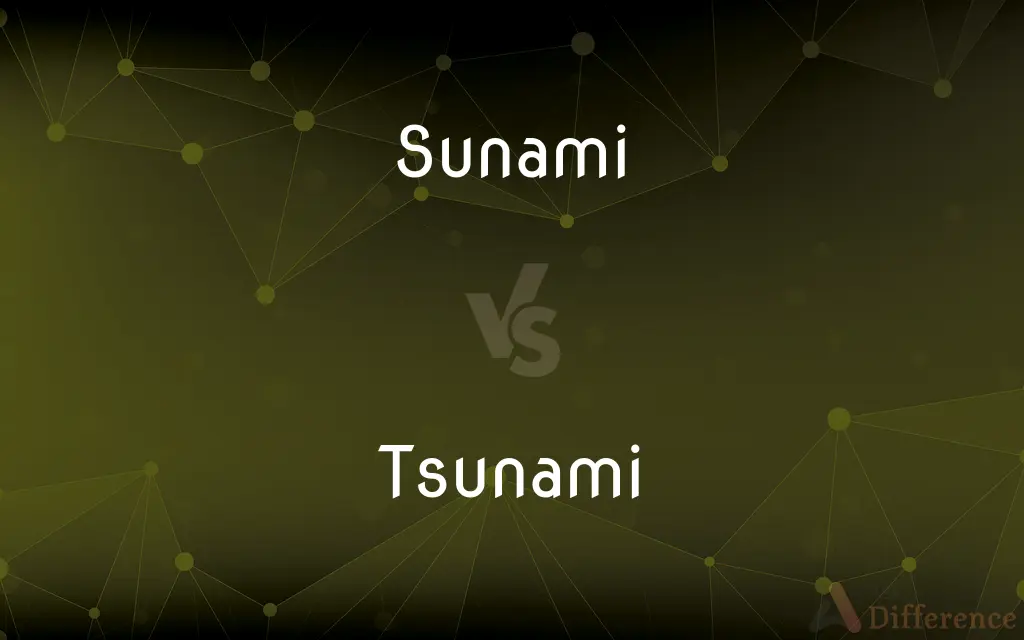Sunami vs. Tsunami — What's the Difference?

Difference Between Sunami and Tsunami
ADVERTISEMENT
Compare with Definitions
Sunami
(nonstandard) tsunami.
Tsunami
A tsunami ( (t)soo-NAH-mee, (t)suu-; from Japanese: 津波, lit. 'harbour wave', pronounced [tsɯnami]) is a series of waves in a water body caused by the displacement of a large volume of water, generally in an ocean or a large lake. Earthquakes, volcanic eruptions and other underwater explosions (including detonations, landslides, glacier calvings, meteorite impacts and other disturbances) above or below water all have the potential to generate a tsunami.
Tsunami
A long, high sea wave caused by an earthquake or other disturbance
The loss of human lives from this latest tsunami is staggering
Tsunami
A very large ocean wave caused by an underwater earthquake or volcanic eruption.
Tsunami
A very large and destructive wave, generally caused by a tremendous disturbance in the ocean, such as an undersea earthquake or volcanic eruption. Tsunami are usually a series of waves, or wave train.
ADVERTISEMENT
Tsunami
(figurative) A large and generally unstoppable surge.
Tsunami
A huge destructive wave (especially one caused by an earthquake)
Share Your Discovery

Previous Comparison
Antiseptic vs. Septic
Next Comparison
Dispatch vs. Post














































